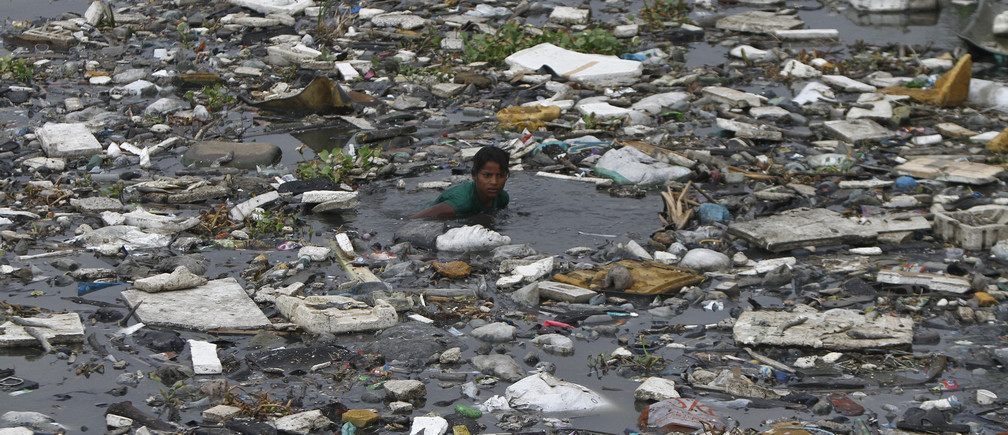Water Contamination Crisis in India
Current Affairs NationalPosted by newadmin on 2025-03-18 08:43:38 |
Share: Facebook | Twitter | Whatsapp | Linkedin Visits: 39

A recent parliamentary committee report has raised serious concerns about water contamination in India. The Standing Committee on Water Resources highlighted that over 11,000 habitations across multiple states face severe pollution issues, with contaminants such as iron, nitrate, and heavy metals posing significant health risks. The report underscores the urgent need for both immediate and long-term measures to ensure safe drinking water for affected communities.
The extent of contamination is alarming, with 11,348 habitations across 96 districts in seven states grappling with water quality issues. Punjab stands out as a particularly concerning case due to uranium contamination, affecting 32 habitations in nine districts. While interim measures have been introduced in some areas, many regions continue to suffer from a lack of remedial action.
In response to these challenges, the government has extended the Swachh Bharat Mission (Grameen) Phase II until 2025-26. This initiative focuses on maintaining Open Defecation Free (ODF) status and improving waste management in rural areas. However, the committee pointed out issues with fund utilization, revealing that only 33% of the revised budget had been spent in the financial year 2024-25.
To enhance water service delivery, the Department of Drinking Water and Sanitation is shifting towards a community-driven approach known as “Jan Bhagidhari.” This model emphasizes active public participation and cooperation between the central and state governments through memorandums of understanding. The goal is to create a more sustainable and reliable system for providing safe drinking water.
Despite these efforts, several challenges remain, particularly concerning the disbursement of funds. The integration of the fund release system with the Reserve Bank of India’s e-Kuber platform has encountered difficulties, causing delays in implementation. The committee also emphasized the importance of better pre-budget planning to prevent drastic budget cuts at the revised estimate stage.
Moving forward, the government must accelerate efforts to improve water quality and accessibility. The success of initiatives like the Jal Jeevan Mission and Swachh Bharat Mission depends on effective planning and execution. Ensuring clean and safe drinking water remains a critical priority for enhancing the quality of life in rural India.
Search
Categories
Recent News
- SEBI Assistant Manager Prelims Results: Unlocking Career Opportunities
- Washington Post's International Shake-Up: A Tharoor's Tale
- Karnataka's Digital Leap: Revolutionizing Land Deals with Auto-Mutation
- Crypto Crash: Bitcoin's Rocky Road
- Pant's Patience: The Comeback Story Unfolds
- Life Sentence for Trump's Would-Be Assassin: Justice Served
- Trump's Response to Minneapolis Tragedy: A Delicate Balance
- Fuel Prices Fluctuate: How Much Will You Pay Today?
Popular News
- Navigating IPO Market Dynamics Amid Volatility and Regulatory Changes
- Massive Worldwide Microsoft Outage Disrupts Multiple Sectors
- Panjapur Bus Stand to Reshape TNSTC Routes
- తెలుగుదేశం పార్టీ - పేదరికాన్ని నిర్మూలించడంలో వాగ్దానం
- Universities Embrace Remote Learning Technologies Amidst Ongoing Pandemic